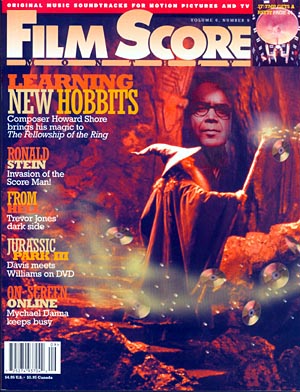| This quote is from FSM's website, describing what it is produced as: | |
| "Film Score Monthly is one of the leading voices in film music appreciation. FSM was founded as a one-page newsletter sent to 11 people by editor/publisher Lukas Kendall in 1990, and has since grown to encompass a hardcopy magazine, prolific CD label, this website, and other publishing and documentary efforts." |
`

~
If I decide to use classical music and film soundtracks as inspiration for the creation of my music magazine, I will use these two for it as I could create a classical music magazine with an article on film soundtracks as the double page spread.
However, I still haven't fully decided what genre I want to do for my magazine. I think that if I don't decide to do classical combined with film soundtracks, I'll do alternative rock- magazines that focus around the genre of alternative rock are NME or Q, which I will write about the history of below.
~
NME magazine (full title New Musical Express) is an alternative rock magazine that has been in publication since 1952. The typical content of NME is interviews and articles focused around specific popular rock musicians, for example The Smiths or The White Stripes. The typical reader of NME varies from some teenagers to people of an older age group, as it depends on the band being featured for the age group buying it- 'older' bands will attract readers of an older age group whereas 'new' bands will most likely attract a teenage-based audience. The graphology (layout) of NME magazine mostly sticks to the traditional layout of a music magazine, for example having all of the coverlines in the left third and the masthead being in a bolder and blockier font. However, the main image of this cover in particular is over the top of areas of text and there is a definite colour scheme, which is sometimes unusual for magazines of this genre.

Q Magazine is a popular monthly music magazine that is published in the UK. Q was first published by the EMAP media/publishing group in 1986. Since then, however, it has transferred to BAUER Media. The title's origin is that a single-letter title would stand out and be easily recognised on magazine stands, which would attract more people to buying it. Q covers various genres of music, however its most common is alternative rock. The general audience and readers of this magazine are people older than teens, as most of the musicians covered in their articles have been popular since before teenagers will have known them. The masthead of Q is regular and stays the same for every issue, which further proves that a simple and recognisable title works well to attract readers.

No comments:
Post a Comment